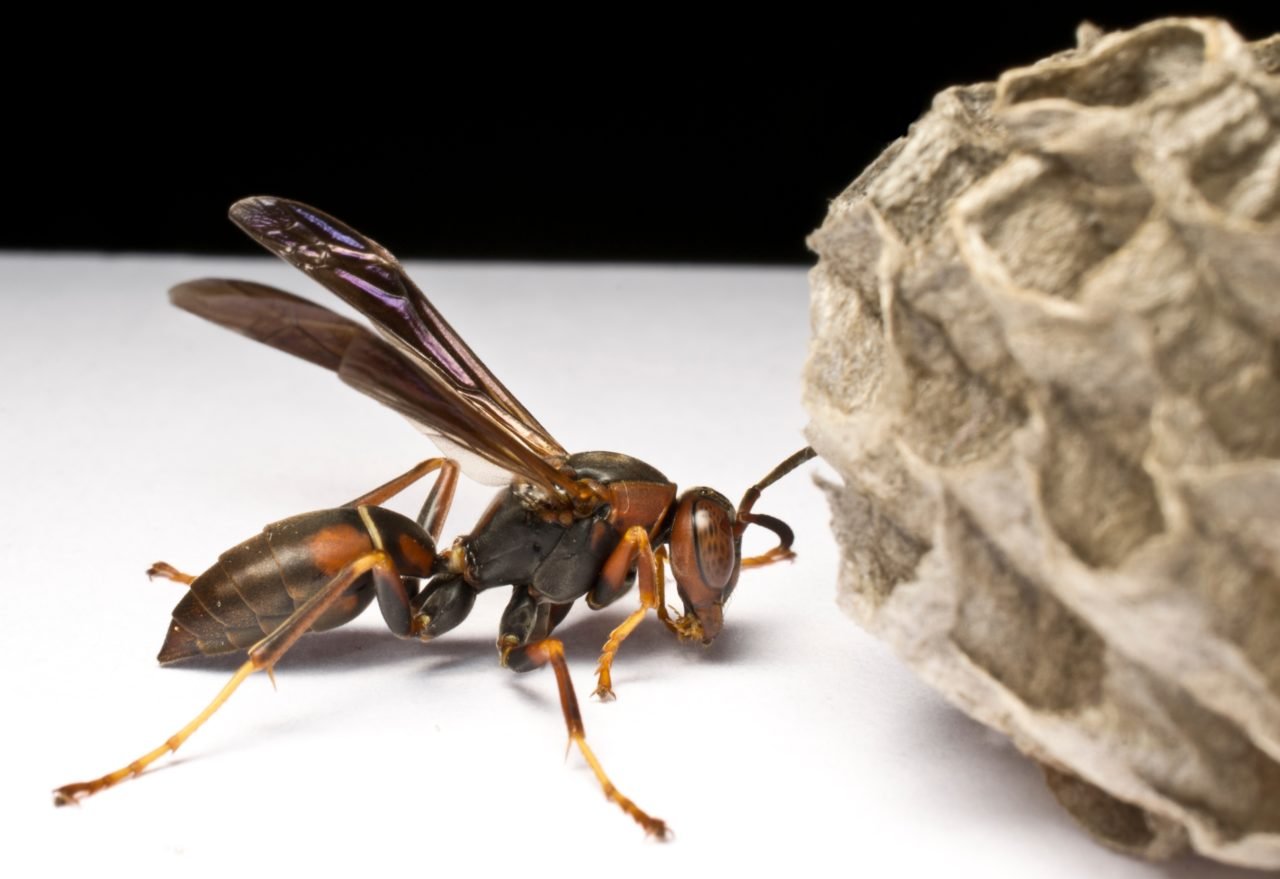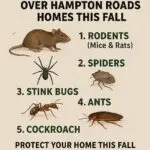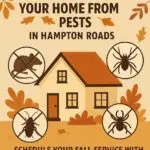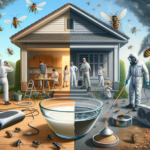
As the weather warms up, stinging insects like bees, wasps, and hornets become more active, and their presence can quickly turn outdoor activities into a source of anxiety. While these insects play important roles in the ecosystem—especially bees, which are vital pollinators—they can pose safety risks when they nest too close to human activity. It’s essential to know how to manage and protect yourself from stinging insects while respecting their place in nature.
In this guide, we’ll explore the different types of stinging insects, the risks they pose, and effective safety tips for managing them around your home.
Types of Stinging Insects
Before jumping into safety tips, it’s important to understand the differences between bees, wasps, and hornets, as their behaviors and nesting habits vary.
1. Bees
- Honeybees and bumblebees are essential pollinators. They are generally non-aggressive and will only sting when provoked or threatened. Honeybees can only sting once, after which they die, while bumblebees can sting multiple times.
- Nesting Habits: Honeybees typically nest in hollow trees, crevices, or man-made structures, while bumblebees tend to nest underground or in dense grass.
2. Wasps
- Wasps, such as yellowjackets and paper wasps, are more aggressive than bees and can sting multiple times. They are attracted to food and sugary drinks, which makes them common visitors to outdoor picnics and barbecues.
- Nesting Habits: Wasps build paper-like nests in protected areas, including eaves, attics, or underground. Yellowjackets are particularly aggressive when defending their nests.
3. Hornets
- Hornets are a type of wasp and are generally larger and more aggressive. They can sting multiple times, and their stings can be more painful due to the larger amount of venom they inject.
- Nesting Habits: Hornets typically build large, ball-shaped nests in trees, bushes, or under eaves.
The Risks of Stinging Insects
While most stings from bees, wasps, or hornets result in temporary pain, itching, and swelling, multiple stings or stings from aggressive species can pose more serious risks. Here are some of the dangers associated with stinging insects:
- Allergic Reactions: Some people are allergic to stings and can experience severe reactions, including anaphylaxis, which requires immediate medical attention.
- Multiple Stings: Insects like yellowjackets and hornets can sting multiple times, causing a larger reaction or even leading to complications, especially in children or pets.
- Infection: Improperly treated stings can become infected, leading to further complications.
- Aggressive Behavior: Wasps and hornets, in particular, can become highly aggressive if their nests are disturbed. They may swarm and sting repeatedly in defense.
Safety Tips for Managing Stinging Insects
Whether you’re dealing with a few buzzing around or an active nest near your home, taking the right precautions can help minimize the risk of stings and keep your family safe.
1. Avoid Attracting Them
To prevent stinging insects from being drawn to your home or outdoor activities:
- Keep Food Covered: When eating outdoors, always cover food and drinks. Wasps and bees are attracted to sweet smells, especially sugary foods and drinks.
- Manage Garbage: Secure trash cans with tight-fitting lids to avoid attracting wasps and hornets looking for food.
- Remove Sweet Scents: Avoid wearing heavily scented perfumes, lotions, or hairsprays, as these can attract stinging insects.
2. Wear Protective Clothing
When working in areas where stinging insects are active:
- Cover Your Skin: Wear long sleeves, pants, and closed-toe shoes to minimize exposed skin.
- Avoid Bright Colors: Stinging insects are attracted to bright colors, particularly yellow and orange, so opt for neutral clothing when outdoors.
3. Stay Calm Around Stinging Insects
If a bee or wasp approaches you, don’t panic. Sudden movements, like swatting, can provoke them to sting. Instead:
- Stay Still: Remain calm and still until the insect flies away.
- Walk Away Slowly: If it lingers, calmly walk away without making sudden movements.
4. Seal Entry Points Around Your Home
Prevent stinging insects from nesting inside or around your home by sealing potential entry points:
- Repair Holes and Cracks: Seal cracks in walls, around windows, and doors where insects could enter.
- Cover Vents and Openings: Use screens to cover vents, chimneys, and other potential entry points.
5. Remove Nests Safely
If you discover a nest in or near your home, it’s crucial to avoid disturbing it on your own:
- Call a Professional: Attempting to remove or disturb a nest, especially for aggressive wasps or hornets, can be dangerous. Call a professional pest control service to safely and effectively remove the nest.
- Avoid DIY Nest Removal: Using sprays or knocking down nests yourself can provoke an attack. Professional pest control services have the expertise and protective gear needed to handle nests without triggering aggressive behavior.
6. Manage Overgrown Vegetation
Stinging insects like to build nests in overgrown bushes, trees, or tall grass:
- Trim Bushes and Trees: Regularly trim trees, bushes, and hedges near your home to reduce potential nesting areas.
- Keep Lawns Mowed: Maintaining a short lawn reduces the chances of ground-nesting insects like yellowjackets from settling in.
When to Seek Professional Help
If you suspect a stinging insect infestation or have found a nest near your home, it’s best to contact a professional pest control service, like Adibug, to safely remove the threat. Attempting to handle aggressive wasps, hornets, or large bee colonies on your own can lead to painful stings and dangerous situations, especially if you’re allergic.
Why Choose Adibug for Stinging Insect Control?
At Adibug, we specialize in the safe and humane removal of stinging insect nests. Our Portsmouth, VA pest control services are designed to handle any infestation while prioritizing the safety of your family and pets. Whether it’s bees, wasps, or hornets, our experienced team will assess the situation and provide effective solutions to keep your property free from stinging insects.
- Safe nest removal: We use specialized equipment and methods to remove nests without provoking aggressive behavior.
- Preventative measures: Our experts will inspect your home to identify potential nesting areas and offer tips on preventing future infestations.
- Eco-friendly solutions: We offer eco-friendly pest control options to protect pollinators like bees while keeping your home safe.
Contact Adibug for Safe and Effective Stinging Insect Control
Don’t let stinging insects ruin your outdoor activities or put your family at risk. Contact Adibug today at 7578520085 or visit Adibug.com to schedule a consultation. Our team will help you enjoy a pest-free summer with peace of mind!







